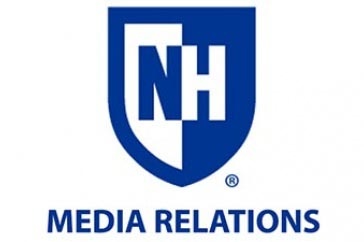UNH Research Finds Weekend Food Programs Lead to Higher Student Test Scores

DURHAM, N.H.—Weekend backpack food programs result in improvements to end-of-grade reading and math scores for economically disadvantaged primary school students, according to new research released by the Carsey School of Public Policy at the University of New Hampshire.
The research found impacts on reading and math scores were strongest for the youngest and lowest performing students.
“The improvements are large enough to substantially reduce the performance gap experienced by economically disadvantaged students,” said the researchers. “Given that these programs are relatively inexpensive and are supplemental to the nutritional assistance already provided by schools and government, the findings highlight an important avenue by which nutritional assistance can benefit the academic performance of economically disadvantaged children.”
The research was conducted by Michael Kurtz, associate professor of economics at Lycoming College; Karen Conway, professor of economics at UNH; and Robert Mohr, associate professor of economics at UNH.
The Carsey School of Public Policy is nationally recognized for research, policy education and bringing people together for thoughtful dialogue to address important societal challenges. The school develops and facilitates innovative, responsive and equitable solutions at all levels of government and in the for-profit and nonprofit sectors.
The University of New Hampshire inspires innovation and transforms lives in our state, nation and world. More than 16,000 students from all 50 states and 71 countries engage with an award-winning faculty in top-ranked programs in business, engineering, law, health and human services, liberal arts and the sciences across more than 200 programs of study. As one of the nation’s highest-performing research universities, UNH partners with NASA, NOAA, NSF and NIH, and receives more than $110 million in competitive external funding every year to further explore and define the frontiers of land, sea and space.
Latest News
-
May 7, 2024
-
April 26, 2024
-
April 16, 2024
-
April 16, 2024
-
April 16, 2024
















































